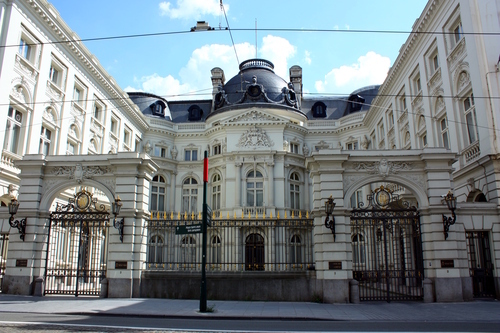Fonds de solidarité et cumul des aides : des risques nouveaux
L’évolution du fonds de solidarité et du profil des entreprises pouvant y prétendre introduit, selon le rapport de la Cour des comptes, des risques nouveaux.
« Le fonds de solidarité étant cumulable avec les autres aides de l’État, celles des fonds de soutien régionaux voire de certains organismes de sécurité sociale, il est possible de verser un montant cumulé d’aides supérieur au préjudice subi », souligne l’institution, précisant que « le risque de fraude est majoré dès lors qu’il s’agit de verser de façon durable des aides de montants plus élevés ».
Ainsi, une entreprise bénéficiant à la fois du fonds de solidarité et du dispositif d’activité partielle peut obtenir de meilleurs résultats qu’un an auparavant, avant le début de la crise sanitaire.
Le montant exact de la fraude n’a pas pu être défini, mais la Cour des comptes l’estime « très faible » entre mars et septembre 2020, « avec un impact estimé à 21 millions d’euros sur les 2 milliards d’euros distribués aux entreprises présentes dans la DSN 2019, soit 1 % des demandes. »
Elle serait un peu plus importante en ce qui concerne « la sous-déclaration de chiffre d’affaires ou de revenus ». Cette estimation repose sur l’examen des entreprises « déclarant leur chiffre d’affaires et leur revenu au régime réel, soit environ 50 % des bénéficiaires ». La fraude potentielle est estimée à 20 millions d’euros en ce qui concerne le chiffre d’affaires, et à 81 millions d’euros pour ce qui est des revenus.
La Cour des comptes estime qu’en tout, le montant de la fraude peut être compris entre 20 millions d’euros, soit 0,3 % des aides versées, et 100 millions d’euros, soit 1,6 % des aides, entre mars et septembre 2020.
L’administration fiscale, consciente des risques liés à l’augmentation du montant des subventions, a progressivement mis en place un renforcement des contrôles, notamment pour les aides dépassant les 30 000 euros, qui font l’objet d’un dispositif spécifique d’instruction.
Fonds de solidarité : de nombreuses évolutions depuis sa création
À sa création en mars 2020, le fonds de solidarité était exclusivement destiné aux indépendants, aux professions libérales, aux micro-entrepreneurs et aux TPE sous le coup d’une fermeture administrative, ou subissant une baisse conséquente de leur chiffre d’affaires. Le montant de l’aide était plafonné à 1500 euros par mois.
Entre mars et septembre 2020, 1,7 million d’entreprises y ont eu recours, percevant une aide moyenne de 1383 euros, pour un montant total de 6,8 milliards d’euros. « Concentré sur les secteurs les plus touchés par la crise et les plus petites entreprises, il s’est avéré être un très bon outil pour le versement en urgence d’aides de faible montant », déclare la Cour des comptes.
À partir du mois d’octobre 2020, suite aux nouvelles restrictions, le fonds de solidarité a évolué et permis à des entreprises plus grandes de bénéficier d’aides plus importantes.
Les secteurs d’activité les plus impactés par la crise, comme l’événementiel, la restauration et l’hôtellerie peuvent bénéficier de cette aide, et les plafonds ont été relevés à 10 000 euros, puis à 200 000 euros depuis décembre 2020, sans limites maximales en ce qui concerne la taille des entreprises.
Entre octobre et décembre 2020, le coût total des subventions accordées a connu une augmentation très importante, avec 8,7 milliards d’euros versés en seulement 3 mois, contre 6,8 milliards durant les 7 précédents mois.
